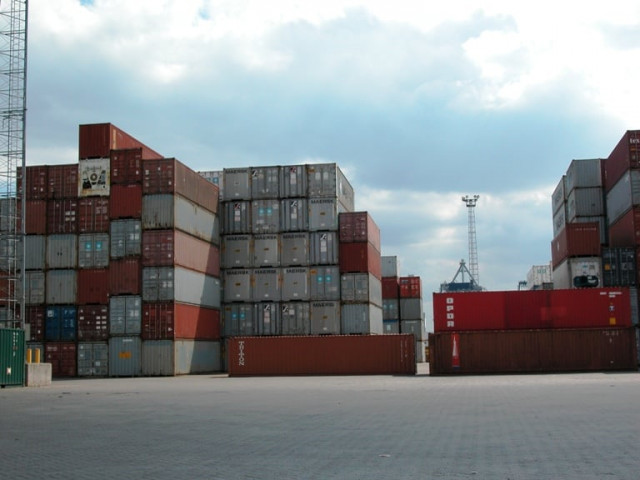Business Confidence Index: Bittersweet results from OICCI survey
Business confidence cumulatively shows positive trend in last six months.

Despite political uncertainty and low levels of Foreign Direct Investment (FDI), the latest Overseas Investors Chamber of Commerce and Industry (OICCI) business confidence survey reveals that the business community is somewhat satisfied with the current scenario in Pakistan.
The survey results are part of the Wave 9 of Business Confidence Index (BCI), which was conducted countrywide during September 2014. At 1% positive, overall BCI score remained the same as Wave 8, results of which were announced in March 2014.
Though business confidence cumulatively showed a positive trend in the last six months (March to September 2014), overall confidence level of OICCI members revealed a marked decline from 31% in March to 16% in the latest survey.

OICCI – an association of 195 multinationals operating in Pakistan – has been conducting this survey bi-annually since 2010, which reflects the mood of the foreign companies operating in the country.
Among the two major divisions, the general mood of the manufacturing sector declined 7% — from 12% in March to 5%. This decline was partially offset by an uptick in confidence of the services sector, which improved from negative 3% to positive 7% in the current survey.
Going forward, business confidence for the next six months remains largely negative except for the services sector that expects a better business environment, the survey suggests.
While 54% of the businesses expect their operations to remain static over the next six months, only 30% expect an increase. This is similar to expectations in the March survey.
Commenting on the survey results, OICCI President Asad S. Jafar said it was encouraging to note positive sentiment.
Jafar added, however, that this positivity teeters on the borderline, posing a serious challenge to federal and provincial authorities to focus on good governance and create an enabling business environment.
This coupled with the dismal level of current first quarter FDI, as reported recently by the State Bank of Pakistan, should be a key concern for the government.
Jafar also expressed concern at the major drop in the confidence level of OICCI members and said the organisation will continue to work closely with authorities to resolve bottlenecks encumbering investment.
Conducted through field interviews in all four provincial capitals, Islamabad and key business towns across the country, the survey covers feedback from representatives of all business segments in Pakistan, covering roughly 80 % Gross Domestic Product. The survey is based on feedback from manufacturing (46%), services (29%) and the retail and wholesale trade (25%) sectors.
Another major focus of the current Wave 9 was to gauge the investment appetite of the respondents. It was observed that the economy is still in an expansionary mode but with a downward trend.
Against 38% in the previous survey, only 30% respondents expect the business to expand in the next six months. Only 24% of the respondents in the current survey have plans to make capital investment while the remaining 76% have no plans for expansion.
Energy shortage, security concerns, inconsistent government policies and high cost of financing were highlighted as major concerns behind non-expansion. Similarly, only 30% (41% in wave 8) expect growth in sales and only 27% expect growth in profitability versus 30% in the last such survey.
Jafar commented that this poor level of interest in investment together with a dismal level of first quarter FDI is unhealthy for an economy like Pakistan which has the capability and potential to grow at a much faster rate given the right environment and timely support.
Published in The Express Tribune, November 6th, 2014.
Like Business on Facebook, follow @TribuneBiz on Twitter to stay informed and join in the conversation.



















COMMENTS
Comments are moderated and generally will be posted if they are on-topic and not abusive.
For more information, please see our Comments FAQ